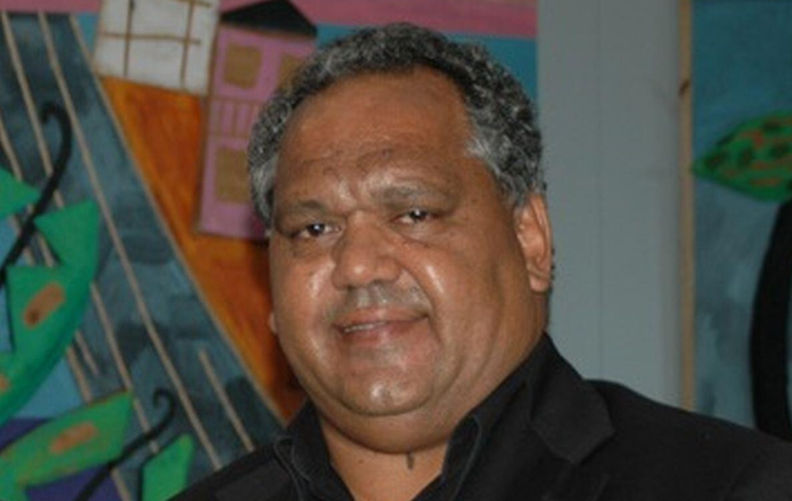Voice rejection sends Australia backwards
May 18, 2025
It was a dramatic return to the political stage! With the election underway, indigenous activist Noel Pearson broke a self-imposed silence which he had kept for 18 months since the failure of the referendum on the voice to parliament.
The Weekend Australian devoted its front page to the story with the heading: “‘Dog’ act; Pearson Unleashes On All.” He lamented the long-term effect of the failed campaign. These 18 months, he declared, had been the “most forlorn in the history of Indigenous affairs”. All political capital on behalf of Indigenous Australians had been spent — the account was indeed overdrawn — and as a result there was no prospect for anything in the remainder of the government’s first term. He was doubtful if there would be any relevant progress in the second term.
His assessment was pessimistic. Indeed, Australia has retreated from standards that have become widely accepted internationally in the last 30 years. The global praise, and even admiration, that came in the wake of the High Court’s Mabo judgment in 1992 has long been forgotten. The government’s decision to concentrate on investment to improve living conditions and thereby “close the gap”, while welcome, is a throwback to the practical reconciliation of John Howard. And one can go back even further to the assimilationist policies of Paul Hasluck, c.1955, which were premised on the improvement of Indigenous health, education and housing.
The paradox of the failure to gain a Voice to Parliament was that it was such a modest proposal as Pearson himself appreciated. A permanent parliamentary advisory committee was far from innovative. All Australian Parliaments have clusters of them. And Indigenous advisory committees have been part of the political landscape since the 1970s. This raises the question of why Albanese chose to take up that part of the Uluru Statement when there were far more substantial questions left hanging — truth-telling, for instance, treaty-making and the abiding question of sovereignty. These were being seriously discussed a generation ago when in 1988 the Barunga Statement was presented to prime minister Bob Hawke who promised to begin negotiations for a treaty within the life of that Parliament. One has to wonder if anyone in Albanese’s previous, or new ministry, has ever given serious consideration to these questions or will turn their attention to them over the next three years. As Pearson observed, they were never mentioned during the election campaign.
One feature of the referendum that was scarcely noticed in Australia was that the failure was widely reported overseas – in Europe, North America, Asia and the Pacific. The country was being judged and the assessment was almost universal. Australia had been offered the chance to cast off its colonial past and had failed to do so. The old White Australia was resurgent. The promise of the past generation had been squandered. Racist inflected ridicule was riding high. Many Australians would not accept these pointed criticisms. But there was little in the story that could be presented with pride. The First Nation’s community had been commissioned by both government and Opposition to carry out a survey of Indigenous opinion all over the continent. It was an investigation of unprecedented scale. There had been nothing like it before. And then 250 delegates had met in Uluru in May 2017 to summarise their findings. The document was, the delegates explained, a “statement from the heart” addressed to the Australian people who were invited to “walk with us in a movement… for a better future”. This is why the voting down of the referendum was such a blow. It was the epitome of deep, cutting disrespect that will be painfully remembered for many years to come.
Sovereignty was at the centre of the Statement and it won’t go away. It remains there as the central legal and political inheritance left over from the era of British colonialism. We seem to lack the will to shed this burden. However, the Indigenous position was clearly set out for our consideration:
Our Aboriginal and Torres Strait tribes were the first sovereign nations of the Australian continent… and possessed it under our own laws and customs.
It has never been ceded or extinguished and co-exists with the sovereignty of the Crown.
How could it be otherwise? That peoples possessed a land for 60 millennia and this sacred link disappears from world history in merely the last 200 years?
With substantive constitutional change and structural reform, we believe this ancient sovereignty can shine through as a fuller expression of Australia’s nationhood.
Many of the Uluru delegates came from communities where traditional law and custom still prevailed. In a recent report, the Territories Northern Land Council explained that 78% of the people living on their lands, or 38,500 in total, came from remote communities. The majority speak their own languages while “customary law constitutes the primary rule by which people continue to conduct their lives”.
This presents Australian law with a profound judicial problem. Current legal doctrine has determined that there can be no challenge to the sovereignty of the Crown. The decision made in Britain during the reign of George the third that the Indigenous Australians did not exercise sovereignty over their homelands remains in place and cannot be questioned in our national courts. The Empire prevails. Decolonisation still remains out of reach.


